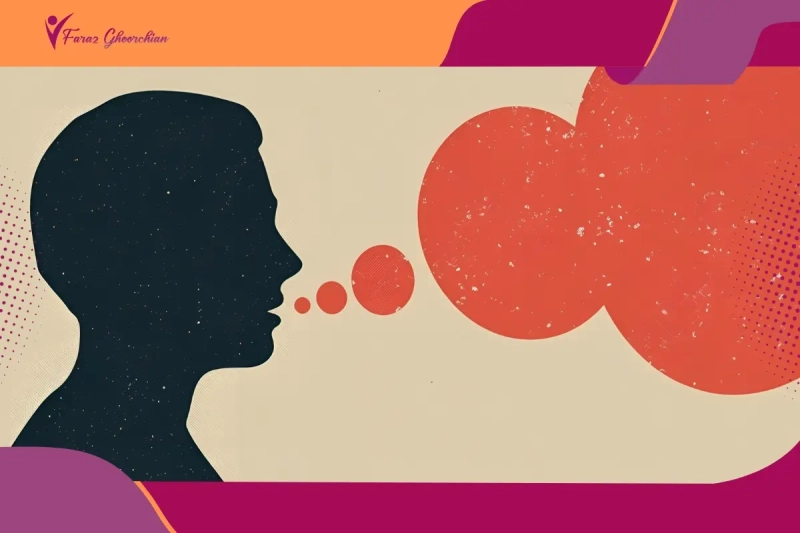In this article from the “Mane Haghighi” Institute website, we aim to discuss one of the common concerns of most people, which is the issue of abuse in emotional relationships, including the signs and types of abuse in relationships. We will familiarize you, the dear users, with this fundamental topic.
When people think of abuse in emotional relationships, they often think of domestic violence, but abuse in emotional relationships includes any attempt by the other person to dominate and control the other in the relationship.
Abuse in emotional relationships is done for a single purpose: to gain and maintain control over the other person. The abuser actually uses the transfer of feelings of guilt, shame, intimidation, and threat to gain control over the other person and the relationship.
Abuse in emotional relationships can happen to anyone; although the physical harm of this behavior may be more evident, it also causes severe emotional and psychological damage.
When you encounter abuse in a relationship, your sense of self-worth is severely diminished, you may become depressed and anxious, and you may feel helpless and lonely.
The first step to address this issue is to recognize the abuse in the relationship you are in. You will become more familiar with this topic in the following.
What are the signs of abuse in a relationship?
There are many signs to identify abuse in emotional relationships, and among them, fear of the other party is the most eloquent. If you are constantly worried that you will say or do something that will provoke violence from the other party, you are likely in a destructive and unhealthy relationship.
To identify abuse in a relationship, answer the following questions. The more “yes” answers you have, the more likely the other party is an abuser.
1. Questions about your inner thoughts and feelings
- Do you often feel afraid of the other person?
- Do you avoid talking about certain topics because you’re afraid of their reaction?
- Do you feel like you can’t do anything right for them?
- Do you believe you deserve to be hurt or mistreated?
- Do you sometimes think you’re the “crazy” one in the relationship?
- Have you become emotionally numb or hopeless?
2. Questions about the other person’s demeaning behavior
- Does the other person humiliate or yell at you?
- Is the mistreatment so bad that you’re ashamed to see your friends and family?
- Do they ignore or dismiss your opinions and achievements?
- Do they blame you for their abusive behaviors?
- Do they see you as a sexual object rather than a person?
3. Questions about the other person’s violent or threatening behavior
- Does the other person have a bad or unpredictable temper?
- Do they harm or threaten to kill you?
- Do they threaten to take or harm your children?
- Do they threaten to hurt themselves if you leave?
- Do they force you to have sexual relations?
- Do they damage your property?
4. Questions about the other person’s controlling behavior
- Is the other person extremely jealous?
- Do they constantly monitor where you go and what you do?
- Do they prevent you from seeing friends and family?
- Have they limited your access to money, the internet, phone, or car?
- Do they constantly check up on you?
What is physical abuse?
Physical abuse refers to the use of physical force against you that causes harm or puts you at risk of harm.
Some examples of physical abuse in relationships include burning, choking, pulling hair, slapping, beating, and any injury with a weapon.
Physical abuse can lead to various physical and mental health issues, such as sleep disturbances, changes in appetite, post-traumatic stress disorder, depression, sexual dysfunction, and substance abuse.
Physical abuse is one of the most dangerous cases of abuse that can even lead to the risk of serious physical injuries and death.
What is sexual abuse?
Sexual abuse involves attempts to pressure or force you into sexual acts. The abuser may use guilt, shame, intimidation or fear to get what they want.
Sexual abuse can also occur alongside other forms of abuse, such as physical and emotional abuse.
Signs of Sexual Abuse
Some signs indicate that you are being sexually abused by your spouse or someone you are in a relationship with. These signs include:
- Requests for you to wear clothing in a specific way
- Exploitation of you to perform specific sexual acts
- Insulting you using certain sexual terms or names
- Pressuring you to engage in sexual relations, even when you are ill, tired, or physically injured
- Disregarding your feelings about the sexual relationship
What is psychological abuse?
Psychological abuse is a form of abuse that does not involve physical violence. Even if you have not experienced physical harm or assault in your relationship, it does not mean that abuse is not present.
Many men and women experience psychological abuse in their intimate relationships. This type of abuse is highly damaging, but unfortunately, it is often overlooked.
The goal of psychological abuse is to undermine your self-esteem and independence, allowing the abuser to maintain control over you. This can lead to a feeling of being unable to exist without the abusive partner and make it difficult to leave the relationship.
Psychological abuse includes verbal mistreatment such as yelling, name-calling, blaming, or shaming. It can also involve isolation, intimidation, and controlling behaviors.
How is it possible to prevent the abuse of others in the relationship?
As discussed, abuse in emotional relationships takes various forms and can lead to you being controlled. Although women are typically the victims of abuse in emotional relationships, men can also experience this issue. Therefore, whether you are a woman or a man, it is important to prevent the abuse of others in the relationship. Using the methods outlined below can help you in this regard.
Identify unhealthy perfectionism in the other party. Abusive individuals usually have very high and unrealistic expectations of their partner. They believe that everything must proceed according to a specific method or be in line with their expectations.
These individuals are generally inflexible, and when their unrealistic expectations are not met, they become extremely angry and even aggressive. They even react strongly to minor problems, which leads them to have unrealistic expectations of you in the relationship as well.
Look for signs of mood changes or emotional issues. Everyone experiences mood fluctuations occasionally, but abusive individuals often experience more severe mood swings. They may become passive-aggressive or try to make you feel guilty in order to harm you.
In some cases, emotional instability may stem from mental or behavioral disorders. In such cases, the risk of abuse in emotional relationships increases.
Examine the person’s accountability. Abusive individuals generally avoid taking responsibility for their actions whenever possible. They often blame others for their own feelings and behaviors. For example, in an emotional relationship, the other person might say to you, “Why do you disagree with me, making me angry and unable to control myself?”
Such statements indicate the person is trying to shift blame onto others. Pay attention to whether your feelings are considered. The abusive individual believes their needs and thoughts take precedence over those of others.
In a healthy emotional relationship, the needs and feelings of both parties are considered. If you feel your partner or the person you are involved with does not listen to you or is not interested in understanding your thoughts and needs, this may be a sign of an unhealthy relationship.
Look for signs of jealousy. Early in a relationship, your partner’s jealousy may seem appealing, as it could be interpreted as them caring deeply for you. However, even minor jealousy can be a warning sign of potential abuse in emotional relationships.
Jealousy does not indicate love, but rather indicates that the other party does not trust you.
Pay attention to how the person interacts with others. Exploitative individuals are often narcissistic and treat others, especially their subordinates, with indifference and disrespect. If the other party mistreats others, this suggests that you may be exploited in the emotional relationship, and you should prevent this as soon as possible.
Pay attention to your own feelings in the relationship. Everyone has the experience of becoming angry or upset with their partner or being hurt by their words, but these experiences are occasional and short-term in healthy relationships. If your spouse or the person you are in a relationship with constantly causes you distress, harm, humiliation, or disappointment, this is a sign that you are not in a healthy relationship and you need to take action to resolve the problem.
How to overcome the abuse of trust
Have you ever had your trust in someone else betrayed? Has someone ever taken advantage of your trust at some point? Almost all humans have experienced such an issue.
Although the abuse of trust is not considered one of the types of abuse in emotional relationships, it can be observed in all these types. After the trust you had in someone else is broken, you feel betrayed and feel that you have been deceived. This situation can severely disrupt you. So how can you get through this situation?
Discuss your feelings when you have understood them, it is time to talk to the other person about them. This conversation will make the spouse or the person you are in a relationship with realize the impact that the breach of trust has had on you. Although this issue can be painful, it also gives the other person an opportunity to explain their behavior to you.
Receive an appropriate apology. A cursory apology for a serious breach of trust is not enough at all. It is important to see if the other person is genuinely remorseful for what they have done and whether they understand the impact it has had on you.
Timing is also important. After you have explained the issue, it is necessary to give the other person some time to think about their behavior.
Get a promise from the other person. When a breach of trust occurs, it is important to redefine boundaries, goals and expectations. In other words, this is a commitment renewal. This will prove that both partners want the same positive outcome and are willing to work to ensure this outcome.
Be patient. It is natural that you cannot easily trust the other person again. This old saying that “trust is hard to earn but easy to lose” is not just a cliché; therefore, in order to be able to trust again, you need to be patient and see positive change in the other person.
How can I avoid being taken advantage of? Many people ask how they can avoid being taken advantage of. The reality is that you cannot change the other person in an emotional relationship.
If you feel that you are being taken advantage of in a relationship, you need to think of a more fundamental solution; the first thing you need to pay attention to in this situation is to identify the warning signs of abuse in emotional relationships.
If you observe these signs in a relationship, remember that:
– You are not responsible for the other person’s mistreatment.
– You are not the cause of the other person’s undesirable behaviors.
– You deserve to be treated with respect.
– You deserve a safe and happy life.
– Your children deserve a safe and happy life.
– You are not alone. There are others like you who experience abuse in emotional relationships.
Conclusion on abuse in emotional relationships
Therefore, in this situation, what is most important is to think more about establishing a relationship and to examine your decision from all angles.
You may believe that the other person will change, but you need to know that in most cases, abuse always continues; it is important in this situation to take care of yourself and not consider yourself responsible for the other person’s harmful actions.
Ultimately, abuse in emotional relationships is divided into physical, sexual, and psychological types, and more than one type may exist in a relationship. This can be very damaging and jeopardize your physical and mental health.
If you are experiencing abuse in your emotional relationship, you need to know that you are not to blame for this issue, and to prevent its continuation, it is important to set boundaries with the other person and take care of yourself.
















